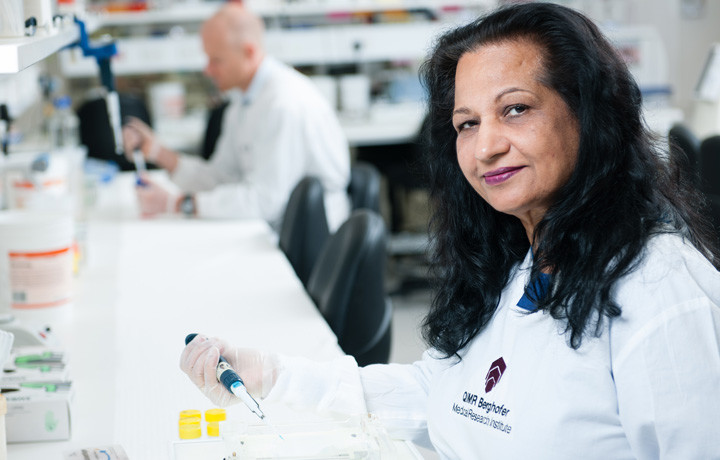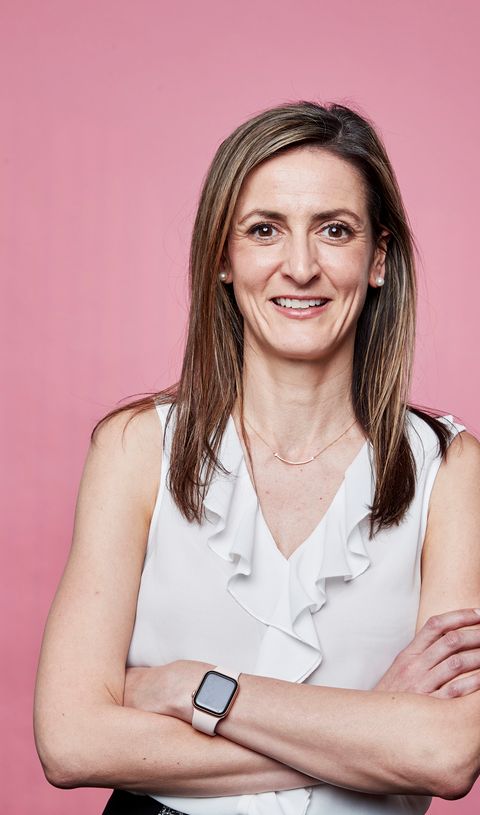NBCF AND OCRF UNITE AGAINST BREAST AND OVARIAN CANCER
Breast cancer doesn’t stop, so neither can we. In these challenging times and the impact of COVID-19, it remains important for us to continue to raise critical funds for breast cancer research. As such, the National Breast Cancer Foundation (NBCF) and the Ovarian Cancer Research Foundation (OCRF) are proud to announce the recipient of a new joint research grant – Professor Kum Kum Khanna from the QIMR Berghofer Medical Research Institute in Queensland. The project will investigate a new combination therapy that has shown promise for both triple negative breast (TNBC) and serous-type ovarian cancer.
The treatment will focus on an important part of the body’s natural recycling system, called proteasomes. These complexes break down unneeded or damaged proteins in the body, but can play an unwanted assistive role in cancer. A class of drugs, called proteasome inhibitors, can act to selectively kill cancer cells, and also prevent their growth and spread in the body.
Previous generations of proteasome inhibiting drugs were not very effective against cancer, as they couldn’t penetrate into solid tumours or get into the brain. Professor Khanna and her team have shown that a new drug, called marizomib, is more effective than the older options, and can reduce the growth and spread of TNBC. The current project will now assess the drug as a treatment for ovarian cancer.
In addition to testing marizomib alone, the researchers will also test it in combination with other FDA-approved drugs. They believe that these combination therapies may lead to a potential treatment for both breast and ovarian cancer.
The National Breast Cancer Foundation is Australia’s leading national body funding research into breast cancer. Since 1994, NBCF has funded $181 million into game-changing breast cancer research. For the first time, we have joined forces with the Ovarian Cancer Research Foundation, the leading national body for ovarian cancer, to provide this new joint grant scheme. This award will support Professor Khanna in her outstanding translational research, to the benefit of all women with cancer.
“The successful completion of this research project will revolutionise treatment, extend life, and decrease mortality associated with metastatic breast and ovarian cancer.” NBCF-funded researcher, Professor Kum Kum Khanna

HOW THIS COLLABORATION WILL HELP WOMEN LIKE EMILY
Emily was diagnosed with triple negative breast cancer [TNBC] in 2014 after she discovered a lump in her breast. She was 34 years old at the time and was completely caught off guard by the diagnosis.
She spent weeks in and out of doctors’ offices for appointments, scans and check-ups. Emily had chemotherapy over the course of five months to shrink the tumour, followed by a bilateral mastectomy. After her diagnosis, Emily vowed ‘not to sweat the small stuff’ and to maintain a positive outlook on life.
As a Community Ambassador for NBCF, Emily hopes to raise awareness of breast cancer in young women.
“I think there is an assumption that breast cancer is for older women, even by medical professionals. I hope that my story will make other young women check their breasts,” she says.
